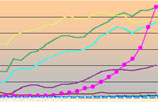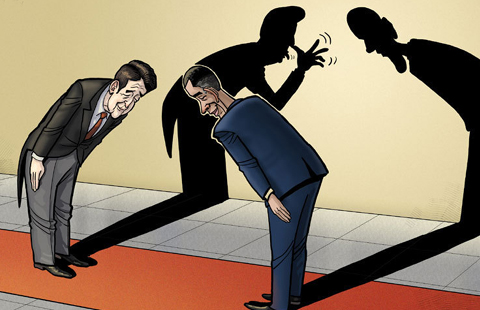Exploring ideal ways to safeguard justice
By Naren Chitty (China Daily) Updated: 2014-12-22 08:06
Rule of Law should be an expression of benevolent rectitude - benevolence manifesting in fairness to all and rectitude manifesting in adherence to good rules.
If benevolent rectitude is not practiced within and projected without by a country, it will lose out on an important dimension of soft power. Benevolent rectitude in this context can only be projected through behavior that reflects it - unlike in the case of some other soft power values.
Why is this important? Consider the World Map of Corruption Perceptions Index. If we look at the BRICS countries this year, China was ranked 100 out of 175 economies, behind Brazil at 65, India at 85 and South Africa at 67, although ahead of Russia at 136. As an emerging world leader China needs to be in the top 10. (The United States, ranked 10, also does less well than it should as the current leading world power.)
The Corruption Perceptions Index, assembled by Transparency International, has received its fair share of criticism for its method, but the results are out there for all to see all the same. As a soft power specialist who recognizes the importance of rule of law both in terms of domestic and international dividends, I am impressed and heartened by President Xi Jinping's efforts to strengthen the rule of law in China. China should set its sights high. It should aim to be in the single digit rankings with the Scandinavian countries - and of course China has the cultural capital, leadership and organizational capacity and wealth - and now the will to realize this.
The other aspect of this, though, is the most important one, the human aspect; making life better for ordinary people.
Importantly the campaign against bureaucratic corruption in China has turned its attention to Chinese governing and security structures. It has been reported that almost 60 "tigers" are under investigation, some of them tigers that had been burning bright, and close to 200,000 officials are reported to have received disciplinary action notices.











